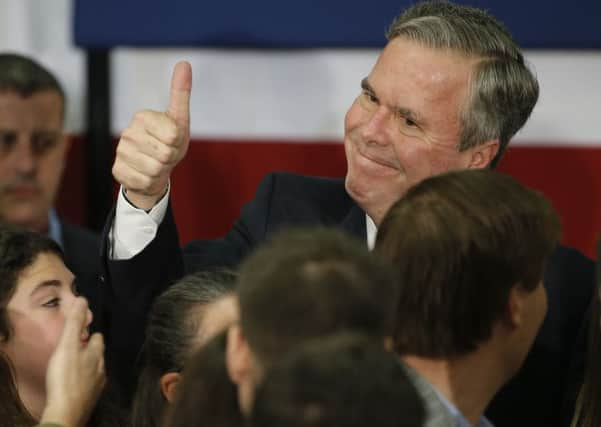Massive fundraising effort can't save Bush


The former Florida governor told supporters that he had tried to stay true to what he believes.
Still, he was lagging far behind in the primary in South Carolina, where his well-organised campaign was outmatched by insurgent billionaire Donald Trump, and senators Ted Cruz and Marco Rubio.
Advertisement
Hide AdAdvertisement
Hide Ad“I’m proud of the campaign that we’ve run to unify our country and to advocate conservative solutions,” a visibly emotional Mr Bush said.
“The presidency is bigger than any one person. It’s certainly bigger than any one candidate.
“I firmly believe the American people must entrust this office to someone who understands that whoever holds it is a servant not the master.”
The son of George HW Bush and brother of George W Bush entered the race to huge expectations in June, and quickly fuelled them with fundraising.
Advertisement
Hide AdAdvertisement
Hide AdWorking with an outside funding group that has supported his candidacy, Mr Bush and allies raised more than $150 million (£104 million) by the end of 2015 – far more than any of his Republican rivals.
However, Mr Bush’s presence in the race and fundraising potential was not enough to dissuade more than a dozen other Republicans from entering the race, including fellow Floridian, Mr Rubio.
Mr Bush offered himself as an experienced public executive and potential world statesman informed in part by his father’s and brother’s wartime presidencies.
But it was not a case strong enough to translate into votes.